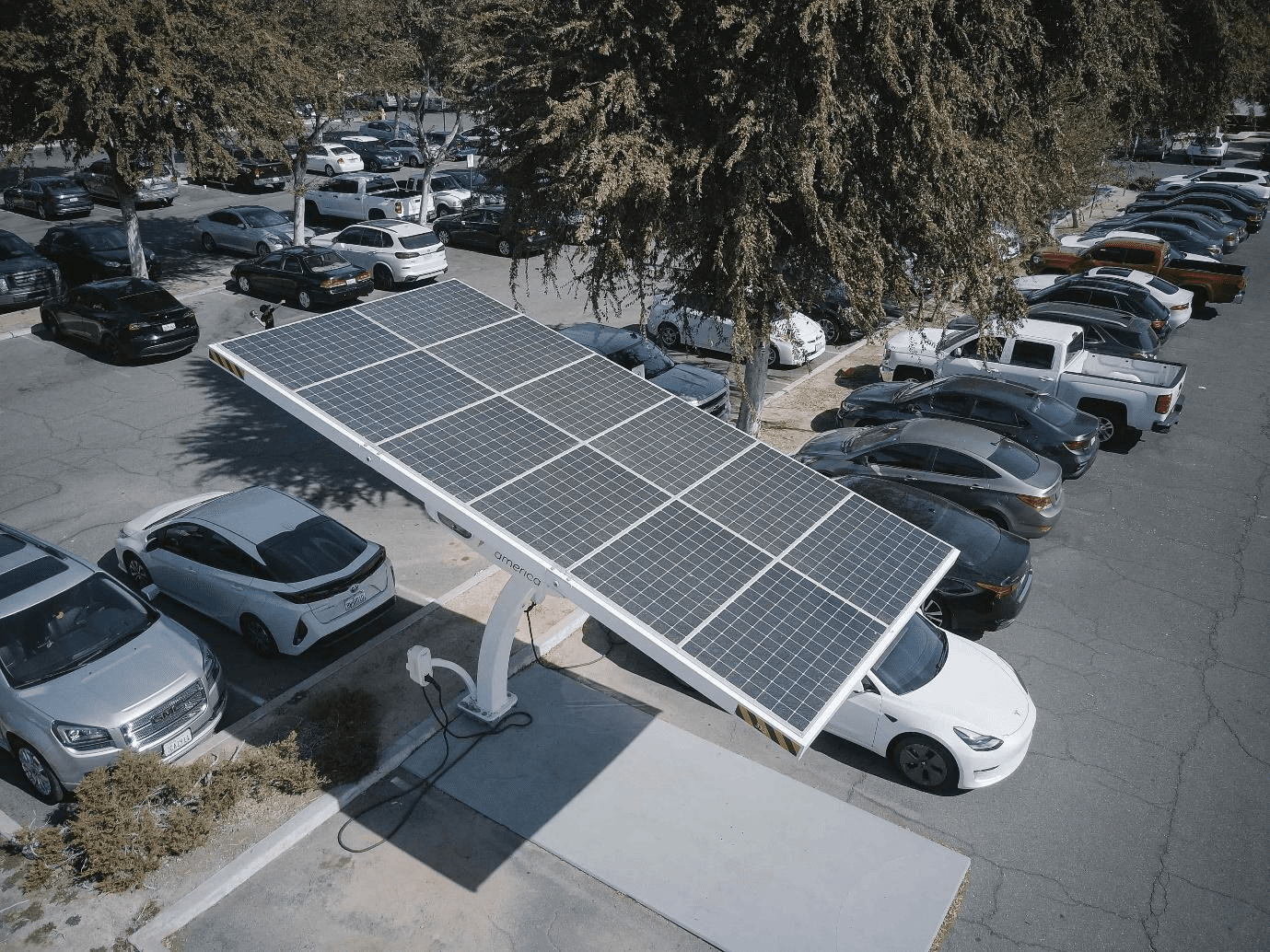Introduction
The United Arab Emirates (UAE) is known for its opulent cars, from Ferraris to Lamborghinis. However, there is a new type of car that is quickly gaining popularity in the country – electric cars. Electric cars are vehicles that are powered by electricity instead of gasoline or diesel fuel. They emit zero emissions and are much more eco-friendly than traditional cars. With the UAE’s commitment to sustainability and reducing its carbon footprint, it’s no surprise that the country is seeing a rapid growth of electric cars. In this article, we will explore the powering ahead of the rapid growth of electric cars in the UAE.
A Brief Overview of Electric Cars
Before delving into the specifics of electric cars in UAE, it’s important to understand what electric cars are and how they differ from traditional gasoline-powered cars. Electric cars run on electricity stored in batteries, while gasoline-powered cars use internal combustion engines that burn gasoline to power the vehicle. This fundamental difference leads to several advantages for electric cars, including lower emissions, lower fuel costs, and a quieter and smoother driving experience.
The Rise of Electric Cars in UAE
Government Support
One of the main reasons for the rapid growth of electric cars in UAE is the strong government support for electric vehicles. In 2017, the UAE government launched the Electric Vehicle Incentive Program, which provides subsidies and incentives for individuals and businesses to purchase electric cars. The program offers up to 50% off the purchase price of an electric car, as well as free charging and parking in designated areas.
Environmental Concerns
The UAE is a country that is heavily reliant on oil and gas for its economy, but this reliance comes at a cost to the environment. The UAE is one of the highest emitters of carbon dioxide per capita in the world, and the government is actively looking for ways to reduce the country’s carbon footprint. Electric cars produce zero emissions, making them an attractive alternative to traditional gasoline-powered cars.
Cost Savings
Another factor that has contributed to the rise of electric cars in UAE is the potential cost savings. While the initial purchase price of an electric car is often higher than that of a gasoline-powered car, the lower fuel costs and maintenance costs can make electric cars a more affordable option in the long run. In addition, the government subsidies and incentives mentioned earlier can further reduce the cost of owning an electric car.
Infrastructure Development
Electric cars require a network of charging stations to support their use, and the UAE has made significant investments in charging infrastructure in recent years. There are now over 200 public charging stations in the country, and the government has announced plans to install thousands more in the coming years. This infrastructure development has made it easier for individuals to own and use electric cars in UAE.
Challenges to Electric Car Adoption in the UAE
While the growth of electric cars in UAE has been impressive, there are still challenges that need to be addressed to accelerate their adoption further. One of the main challenges is the range anxiety that some people feel with electric cars. While the range of electric cars is increasing with advancements in technology, it can still be a concern for some individuals, especially those who frequently drive long distances.
Another challenge is the lack of awareness and education about electric cars. Many people in the UAE may not be familiar with the benefits of electric cars or may have misconceptions about their capabilities. Educating the public about the advantages of electric cars can help to overcome these challenges.
The Benefits of Electric Cars
New Electric cars offer a multitude of benefits, making them an attractive option for UAE residents. Here are some of the advantages of driving an electric car:
- Eco-Friendly: Electric cars produce zero emissions, making them a much more sustainable option for the environment. With the UAE’s commitment to reducing its carbon footprint, driving an electric car is a step in the right direction.
- Low Cost of Ownership: Electric cars are generally cheaper to maintain than traditional cars. They have fewer moving parts, which means fewer things that can break down and need to be fixed. In addition, electric cars require less frequent maintenance, such as oil changes.
- Quiet and Smooth: Electric cars are almost silent and provide a smooth driving experience, which can be a significant advantage in a congested city like Dubai.
- Government Incentives: The UAE government offers several incentives for electric car owners, such as free charging and reduced registration fees. These incentives make owning an electric car more affordable and attractive.
Challenges Facing the Industry
While there are many advantages to electric cars, the industry still faces several challenges. Here are some of the obstacles that need to be overcome for electric cars to become mainstream in UAE:
- Lack of Charging Infrastructure: One of the biggest challenges facing the electric car industry is the lack of charging infrastructure. While the UAE has made significant progress in developing charging stations, there is still a long way to go to ensure that electric car owners have access to charging stations throughout the country.
- Range Anxiety: Many people are concerned about the limited range of electric cars. While modern electric cars have a range of over 400 km, this may not be enough for some people who are used to the convenience of traditional cars.
- Higher Upfront Cost: Electric cars are generally more expensive than traditional cars. While the cost of ownership over the long term is lower, the higher upfront cost can be a significant barrier for many people.
The Future of Electric Cars in UAE
Despite the challenges facing the industry, the future of electric cars in UAE looks bright. Here are some of the developments that are driving the growth of electric cars in the country:
- Government Support: The UAE government has shown strong support for electric cars, with initiatives such as the Dubai Green Mobility Initiative, which aims to reduce carbon emissions from transportation.
- Investment in Charging Infrastructure: The UAE has made significant investments in charging infrastructure, with over 200 charging stations installed in Dubai alone.
- Collaboration with Car Manufacturers: Several car manufacturers have partnered with the UAE government to promote the use of electric cars in the country. For example, Tesla has installed Superchargers throughout the UAE, making it easier for Tesla owners to travel throughout the country.
Conclusion
The rapid growth of buying and selling electric cars in UAE is a positive sign for the future of sustainable transportation in the country. The strong government support for electric vehicles, environmental concerns, cost savings, and infrastructure development have all contributed to their increasing popularity. While there are still challenges to be addressed, the future looks bright for electric cars in UAE. the UAE has made significant progress in promoting electric cars as a sustainable alternative to traditional gasoline-powered cars. The government’s support, environmental concerns, cost savings, and infrastructure development have all contributed to the rapid growth of electric cars in the country. With continued investments and awareness efforts, the future looks bright for electric cars in the UAE.
FAQs
Q: What is an electric car?
An electric car is a vehicle that runs on electricity stored in batteries
Q: How does an electric car differ from a gasoline-powered car?
An electric car uses electricity stored in batteries to power the vehicle, while a gasoline-powered car uses an internal combustion engine that burns gasoline to produce energy.
Q: What are the benefits of owning an electric car?
Electric cars produce zero emissions, have lower fuel costs, and require less maintenance compared to gasoline-powered cars. They also offer a quieter and smoother driving experience.
Q: How does the UAE government support electric vehicles?
The UAE government offers subsidies and incentives for individuals and businesses to purchase electric cars through the Electric Vehicle Incentive Program. The program provides up to 50% off the purchase price of an electric car and free charging and parking in designated areas.
Q: What are the challenges to electric car adoption in the UAE?
The main challenges to electric car adoption in the UAE are range anxiety, lack of awareness and education, and the need for further infrastructure development.
Q: How long does it take to charge an electric car?
The time it takes to charge an electric car depends on the size of the battery and the charging speed of the station. Most electric cars take between 30 minutes to a few hours to charge fully.
Q: Are there enough charging stations in the UAE?
While the UAE has made significant progress in developing charging infrastructure, there is still a need for more charging stations throughout the country. However, the government and private
sector are investing in expanding the network of charging stations to meet the growing demand for electric cars.
Q: Are electric cars affordable?
Electric cars are generally more expensive than traditional cars, but the cost of ownership over the long term is lower due to lower maintenance costs and no need to buy gasoline. In addition, the UAE government offers several incentives for electric car owners, making them more affordable.

































